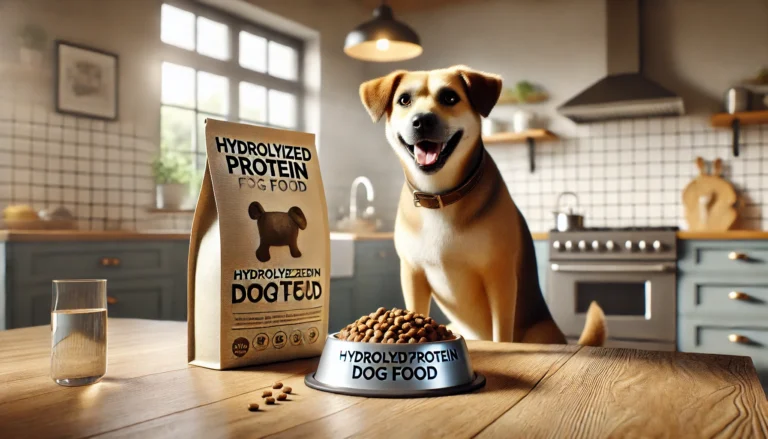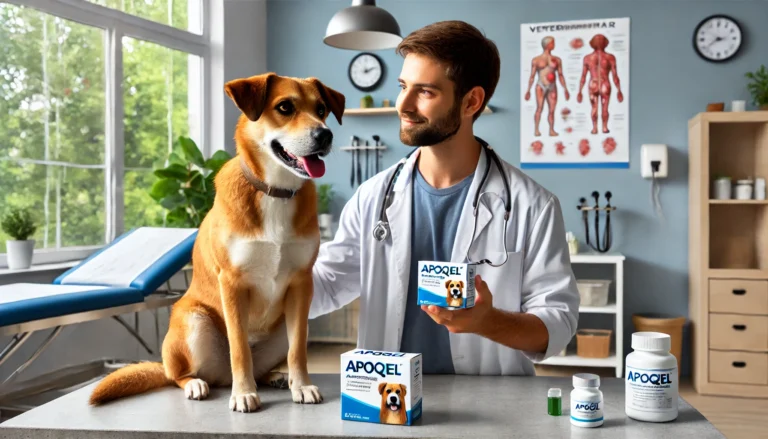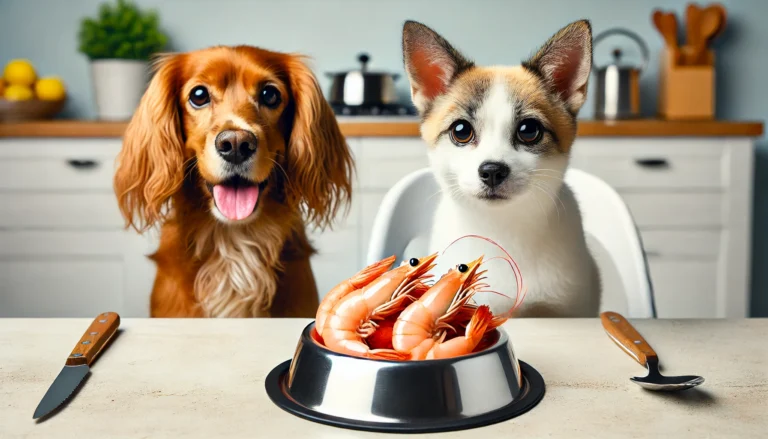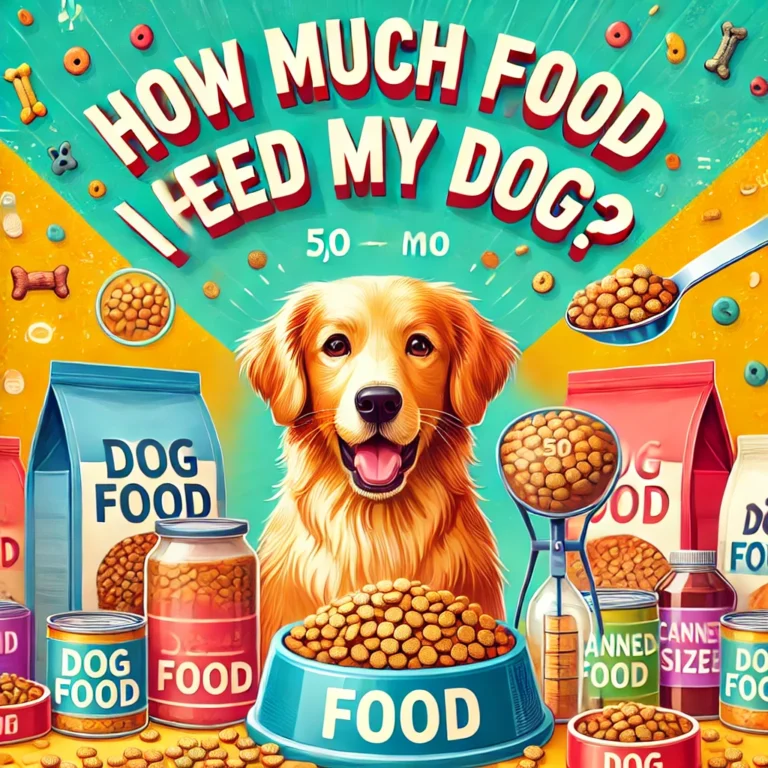Can Dogs Eat Ham?

comprehensive detail you need to know
Dogs Eat Ham is most asked question now a days! Hey dog parents! Ever caught yourself in the kitchen, ham in hand, with those big puppy eyes looking up at you? It’s tempting to share, but hang on—let’s dig into whether ham is a snack your dog can enjoy or if it’s a menu item you should skip.
What is Ham, Exactly?
Ham, that popular cut from the hind leg of a pig, is a staple on many dinner tables, especially during festive seasons. It’s tasty, sure, but can dogs have ham just as humans can? While the answer isn’t just a simple yes or no, it’s important to consider a few things before feeding your furry friend this type of meat.
The Nutritional Breakdown
Dogs Eat Ham, Ham is rich in protein but it’s also packed with fat and salt, which brings us to the big question: Is ham bad for dogs? The short answer is that it’s not the best choice for your pet. High fat content can lead to pancreatitis, and too much salt can cause issues like increased thirst, urination, and even sodium ion poisoning.
Potential Hazards of Ham for Dogs
- Pancreatitis: Due to its high-fat content, ham can contribute to the development of pancreatitis, a serious condition that can be painful and even life-threatening for dogs.
- Salt Content: Ham is often cured with salt, making it quite high in sodium. Excessive salt intake can lead to sodium ion poisoning in dogs, manifesting symptoms like vomiting, diarrhea, and seizures.
- Obesity: With its high calorie count, ham can also contribute to obesity in pets, which brings a slew of other health issues like joint pain and diabetes.
do you know
Why is your dog drinking a lot of water? If you’ve noticed lately, you might be concerned about what this means for their health. Excessive water consumption can sometimes be harmless, tied to your dog’s activity level or the weather, but it can also be a symptom of serious health issues. In this article, we’ll explore all the reasons why your dog might be consuming more water and provide insights into when you should worry and seek veterinary advice.
But My Dogs Eat Ham only!
Dogs Eat Ham, If your dog just snatched a piece of ham off your plate, don’t panic. A small amount isn’t likely to cause immediate harm. Keep an eye out for any unusual symptoms and make sure fresh water is available to help counteract the salt intake.
Healthier Alternatives to Ham
So, should dogs eat ham? Considering the risks, it’s a safer bet to avoid it. But no worries, there are plenty of other treats that are safe for dogs and just as satisfying. Think cooked lean meats like chicken or turkey without any added spices or salt, or even some dog-friendly veggies like carrots or green beans.
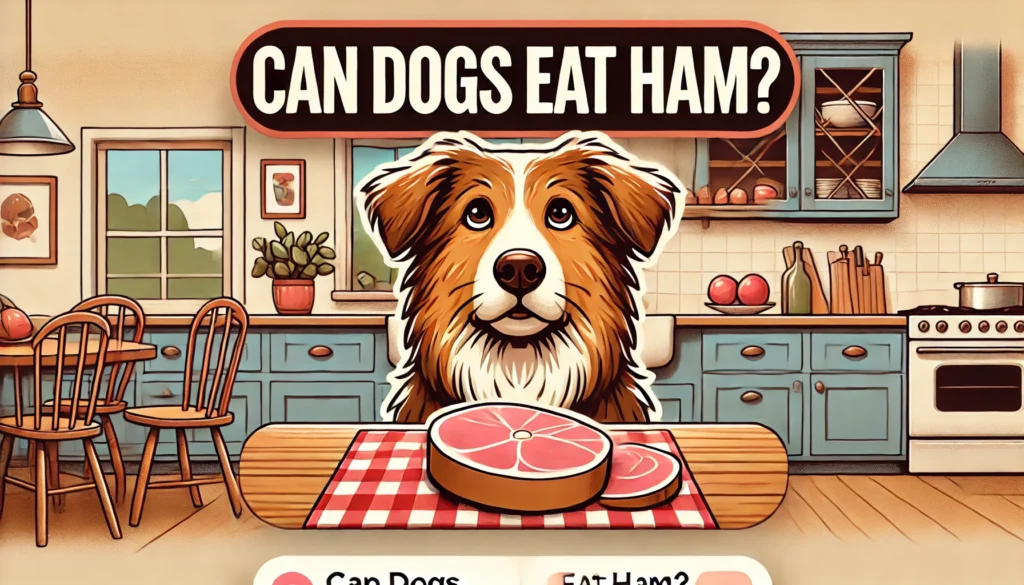
Common Questions About Dogs Eat Ham
- Can puppies eat ham? Puppies have delicate digestive systems, so it’s best to avoid giving ham to puppies altogether.
- Can Dogs Eat Ham cocked bones? Cooked bones can splinter and cause choking or serious damage to your dog’s mouth, throat, or intestines. It’s best to steer clear of any cooked bones.
- What about different types of ham? Whether it’s honey ham, black forest, or smoked ham, the answer remains the same: it’s better to avoid all types of ham due to their high fat and salt content.
Conclusion: Is Ham Okay for Dogs?
Dogs Eat Ham, While dogs can technically eat ham, the potential health risks outweigh the benefits. Is ham safe for dogs? Not really. It’s wise to choose healthier, safer alternatives to keep your dog happy and healthy. After all, there are plenty of other ways to spoil your pup without compromising their health.
Dogs Eat Ham, There you have it! Whether you were curious about “Can Dogs Eat Ham” or “can dog have ham,” now you know why it’s best to keep the ham to yourself and treat your dog with safer, healthier snack options. Your dog may not understand why they can’t share your ham, but they’ll definitely appreciate the love and care you show by keeping their diet safe and healthy!
Is cooked ham ok for dogs?
Dogs Eat Ham, Cooked ham is not recommended for dogs. Although it is not toxic, it is high in fat and sodium, which can be harmful to dogs, especially in large amounts. High fat intake can lead to pancreatitis, a serious condition that causes inflammation of the pancreas, while excessive sodium can lead to dehydration and sodium ion poisoning. It’s best to offer healthier, low-fat, and low-salt meat options to your dog instead of cooked ham.
What happens if my dog ate ham?
Dogs Eat Ham, If your dog ate ham, monitor them closely for any signs of gastrointestinal upset or distress such as vomiting, diarrhea, or lethargy. Small amounts might not cause immediate harm, but large quantities could lead to salt-related issues or pancreatitis. Ensure they have plenty of water to counteract the saltiness of the ham. If you observe any troubling symptoms, contact your veterinarian for advice.
Why can’t dogs eat pork or ham?
Dogs Eat Ham or Dogs can eat pork, if it’s (pork) plain and cooked without spices. However, ham, which is a processed form of pork, is not recommended because it contains high levels of salt and preservatives. These can lead to health issues such as dehydration, sodium ion poisoning, and pancreatitis. The curing process of ham also increases the risk of these additives affecting your dog’s health.
Why can’t dogs have ham or bacon?
Dogs Eat Ham or Bacon Both ham and bacon are highly processed and contain significant amounts of salt and fat, which are detrimental to dogs’ health. The high fat content can lead to pancreatitis, while the high salt content can cause dehydration and sodium ion poisoning. Furthermore, the preservatives used in curing ham and bacon, such as nitrates and nitrites, are also harmful to dogs.
What meat should dogs not eat?
Dogs should avoid meats that are high in fat or heavily processed, such as bacon, ham, and any meat with spicy seasonings or sauces. Raw or undercooked meat should also be avoided due to the risk of parasites and bacterial infections. Additionally, meats like ribs and other bones can cause choking or damage to the digestive tract.
Can dogs have honey?
Dogs can have honey in very small amounts. Honey contains sugars that can add to a dog’s caloric intake and potentially contribute to weight gain if given excessively. However, honey can be beneficial in small doses, such as helping with allergies due to its anti-inflammatory properties and serving as an energy boost.
How much ham can a dog eat in a day?
Ideally, dogs should not eat ham due to its high fat and sodium content. If you choose to feed your dog ham, it should be a very rare treat and only in very small amounts — a few small bites at most, and not a regular part of their diet. Consistently feeding ham can lead to health issues like obesity and heart disease.
Can dogs eat cheese?
Dogs can eat cheese in moderation. It can be a good training treat in small amounts because most dogs find cheese very appealing. However, some dogs may be lactose intolerant, and too much cheese can lead to gastrointestinal upset. Opt for low-fat varieties like mozzarella or cottage cheese to avoid excessive fat intake.
Can dogs eat salami?
It is not recommended for dogs to eat salami due to its high content of fats and salts, along with spices and garlic, which are harmful to dogs. Salami can lead to gastrointestinal upset and more serious health issues like pancreatitis and sodium ion poisoning.
Is egg good for dogs?
Eggs are good for dogs and can be a healthy addition to their diet if given in moderation. They provide high-quality protein and contain many essential amino acids and fatty acids, which can be beneficial for your dog’s coat and skin health. Make sure to cook the eggs without any oil, butter, salt, or seasoning.
What meat is best for dogs?
The best meats for dogs are lean meats like chicken, turkey, and lean cuts of beef. These meats are high in protein and essential nutrients and low in harmful fats, making them excellent choices for your dog’s diet. Always cook meat thoroughly without any harmful seasonings or sauces.
Can dogs eat gravy?
Store-bought gravy is not recommended for dogs as it is often high in fats and salt and may contain onions and garlic, which are toxic to dogs. If you want to add gravy to your dog’s food, make a homemade version that is free from harmful ingredients and seasonings.
Is ham poisonous to dogs?
Ham is not technically poisonous to dogs, but its high fat and sodium content make it an unhealthy choice. Regular consumption of ham can lead to serious health issues like pancreatitis and sodium ion poisoning.
Is onion poisonous to dogs?
Yes, onions are poisonous to dogs and can cause a condition called hemolytic anemia, which can be life-threatening. This occurs because onions contain a substance that can break down red blood cells in dogs. Even small amounts can be harmful, so it’s best to keep all onion-containing foods away from your dog.
Can dogs eat rice?
Yes, dogs can eat rice. It is often used as an ingredient in commercial dog foods or as a home remedy for settling an upset stomach. Rice is a good source of carbohydrates and can be easily digested by dogs. It should be cooked plain, without any seasonings, oils, or spices.
Can dogs eat KFC?
It’s best to avoid feeding your dog KFC or any fast food, as it contains harmful levels of fats, salt, and spices that can cause gastrointestinal upset or more severe health issues like pancreatitis. The cooking oils and seasonings used in fast food are not suitable for dogs.

